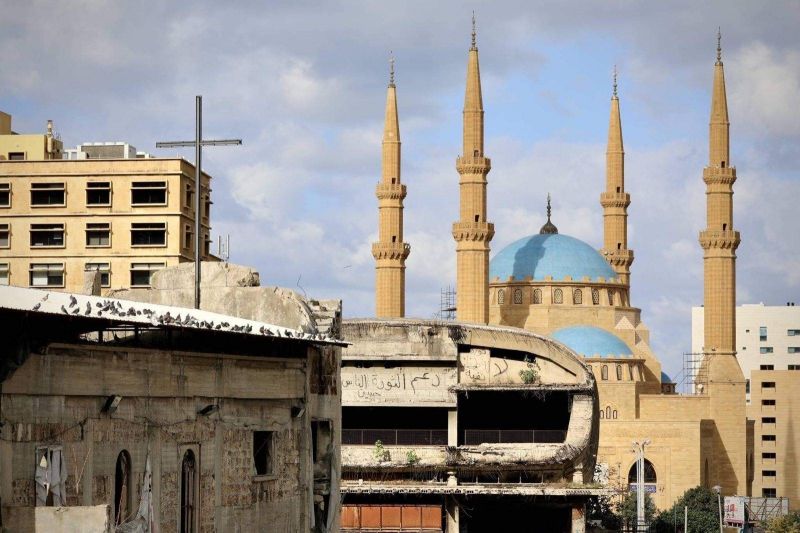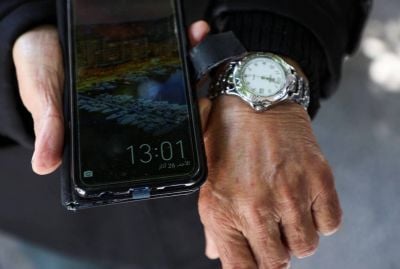
A view of Beirut's downtown. (Credit: Matthieu Karam/L'Orient-Le Jour)
How many different realities can a territory the size of a French department contain before it starts to crack? This is the unfortunate question we must all ask ourselves at the end of a fiasco that is both terribly absurd and deeply alarming.
For four days, the Lebanese people lived in two different time zones depending on their work, community or geographic area. It was a troubling reality where even time, arguably the most neutral thing in the world, has become a dividing factor.
How did we get to this point? And what does this say about us and what still binds us together as a nation?
There are at least three lessons we can learn from this situation.
First and foremost, it’s no surprise that we’re being governed by irresponsible people.
It’s understandable to want to keep the same time zone throughout the year. In fact, the majority of countries in the region already do so. However, this requires anticipating the technical consequences of such a decision in a hyperconnected world.
Unfortunately, caretaker Prime Minister Najib Mikati and Parliament Speaker Nabih Berri do not seem to care.
They approached this subject with the same insulting indifference, crass mediocrity, and lack of respect for their office and those they represent, as they did with the negotiations with the International Monetary Fund, the 2020 Beirut port explosion, and the mass emigration of highly skilled Lebanese citizens.
They say we get the leaders we deserve, and the reaction of a portion of the country to the “Mikati-Berri-Time” seems to confirm this.
The second lesson from this grotesque show is that instead of bringing us together, its main effect was to expose our wounds.
In a matter of hours, the controversy turned into an identity conflict, with time zones being labeled as either “Christian” or “Muslim.”
The worst of Lebanon, which is sometimes concealed under a veneer of “coexistence,” resurfaced.
The Christian community cried foul, and the Muslim community responded aggressively to their complaints. The former made it into an existential issue, and the latter made it a question of honor.
Meanwhile, all those who dream of dividing the country into mini-cantons on religious grounds, including populists and “identity-focused” people, only fanned the flames.
As a result, they were the only ones who benefited from this umpteenth Lebanese-style tragi-comedy.
This brings us to the third and perhaps most crucial lesson.
The debacle underscored the extent to which Lebanon has transformed into a multiverse, a term used in the Marvel universe and elsewhere to describe a set of parallel dimensions and realities that exist simultaneously.
We are currently facing the reality of living in parallel dimensions that have become increasingly disconnected from one another.
It is a challenge to persuade someone who is paid in Lebanese lira and struggling to survive each day that they are living in the same country as someone who is paid in dollars and spends the equivalent of their month’s salary on a single meal.
It is difficult to fathom how a country as small as Lebanon can accommodate so many impoverished individuals and refugees marginalized to camps alongside well-paid people enjoying leisure activities at high-end restaurants and ski resorts.
We are currently dealing with several exchange rates, currencies, time zones and varying relationships to our Lebanese identities, the West, the Arab world and Iran.
It is an overwhelming number of layers to navigate. It is too much. And if we do not establish a shared vision for the future quickly, these parallel universes will inevitably collide rather than coexist.
This could lead to Lebanon breaking apart or vanishing altogether. The situation at hand is critical and demands immediate attention.
This article was originally published in French in L'Orient-Le Jour. Translation by Sahar Ghoussoub.
